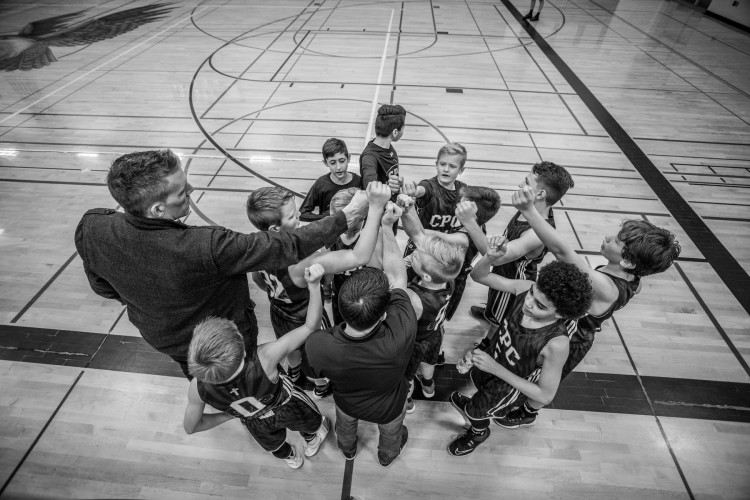
This toolkit explores the many ways that mentoring professionals can help build effective programs for youth who have been impacted by the foster care system. From focusing on creating long-term connections and support systems, to helping build relational competencies and developing social capital, mentoring programs can play an important role in helping to prepare these young people for the transition into the adult world.
Match support is an essential element for ensuring that mentoring helps, rather than harms, youth. As with training, good match support is important for any mentoring match, but becomes especially critical when working with vulnerable populations.
“It can be hard to mentor [youth in the foster care system],” says Dustianne North, Research Chair and TA Provider for the California Mentoring Partnership. “We do all this work on training and then the youth runs away or moves.” Because of this, program staff must create strong relationships with other professionals who work to provide some continuity in the lives of the youth they serve. This means that in addition to making regular contact with the mentor, mentee, and caregivers, someone at the agency should also have contact with caseworkers, social workers, and other people who are involved in the young person’s case. 
“One of the biggest requirements is working well with the system, not just the youth,” North says. “Getting the mentor and mentee in the same room can sometimes be incredibly difficult because of systems barriers.” North points out that every system works differently, so it’s important to get to know how the system works in your area. “Which directors or supervisors will be your allies? Which department works well with you?” she asks. “If the youth you serve are in the 16-24 range, it might be the departments that focus on transition. If it’s younger [youth], you might need to find those directors or supervisors that might be interested in having those youth connected to supports outside the system. If you have to go to each worker independently it could be hard, so top-down buy-in will help. You really need to advocate for the value of mentoring to make [these relationships] happen.”
How a program decides to forge and maintain these relationships can differ. Some programs that work with the foster care system have a sort of parallel support, where case managers or social workers manage the case details of the youth’s situation, while mentor program staff are somewhat removed from those details. This is possible when the mentoring program is embedded into the foster system, such as when the program is actually a part of a placement or a social service agency. In cases where the mentoring program is not that closely tied to foster care services, program staff will have to find a way to work with the system to best meet the needs of the youth they serve.
“We try to stay aware of limits on what kinds of information [mentor program staff] get, so we try not to be involved in every case conversation,” says Christina Hoffecker, program director of Big Brothers Big Sisters of the Carolina Youth Development Center, which works with youth in residential foster programs. “We already know our kids have been abused, and we try to keep their privacy first and foremost. Mentoring staff don’t need full details on what happened to [youth]. We just try to be as specific as we can be without overstepping our boundaries.”

That said, Hoffecker agrees that having some degree of integration with the foster care system is important. “It has been especially crucial that all parties are involved, in terms of caseworkers and case managers. It’s just not possible if you don’t have the buy-in from everyone in the system. There’s a lot of relationship-building from the top-down and the bottom up.” 
Whether a program decides that match support staff should be part of case consultation depends largely on the goals of the program, says Florence Rayner Parks, of the California Mentoring Partnership Leadership Team. For example, if the program goals are more clinical in nature, it would make sense to have mentor program staff embedded into the social work team. If the goals are to provide a supportive relationship in which youth can have fun and participate in activities they might miss out on because they are in foster care, it might be better to separate the social work team from the mentoring team.
Program management should decide whether having the match support staff participate in case consultation would be beneficial to youth. Sometimes this might be on a case-by-case basis, and sometimes it will be a blanket policy for the program, she says. More match support is required at the beginning of a match than is typical for youth not involved in the foster care system, Parks says, especially in first 6 months. This could mean checking in with the mentor, caregiver, social worker, and the young person at least twice every month, or maybe more if the situation is particularly challenging.
Getting information in multiple ways is important too, through phone conversations, in-person meetings, or written mentor reports, and making sure you’re hearing from all parties so you can completely understand what’s happening in the match. “Mentor support is very important,” Parks says. “Mentors have to have someone they can call around the clock to reach out to at any time.”
One of the things that match support can help with is helping mentors understand a youth’s triggers, and helping them to avoid those triggers or manage the youth’s responses to them. Another element of match support that may differ when working with youth in the foster care system is how to manage outings. Because these young people have faced numerous challenges in their lives, it is often challenging for them to feel safe and secure in relationships, particularly with adults.
Hoffecker says that her program addresses this challenge first by structuring the program around safety and limiting how often and at what point in the relationship matches can go off-campus. In addition, match support staff always meet with the youth face-to-face to get updates on the match. With mentors and caregivers, contact can be made by phone, but she stresses that staff can provide extra support to mentees if they meet in person. The program also stipulates that youth have been in residential care for at least a month, and looking toward longevity, before being matched with a mentor. This can cut down on instances where a youth starts the program and then changes placements or otherwise can’t stay in the match. When a mentee does transition out of care, for example through reunification or a kinship care placement, the match is transitioned to community-based, but the level of support remains the same as for those in the residential program. 
Program staff is critical to strong support as well. Parks says that when she was at Wonder, Inc., her match support staff were called life coaches and were all trained life coaching, as well as in trauma-informed care and the foster care system. “Life coaches had to be very positive and be able to turn things around [in a match that was experiencing challenges],” she says. “With youth in foster care, there are a lot of little subtle changes. If mentors think they’re not helping they kind of lose steam, so they need someone who can remind them of the little changes that are happening in the match.” This support can help prevent early termination due to mentor frustration, along with providing peer support such as a buddy system, where mentors are paired with other mentors to talk about their matches and get ideas and advice.
As with mentors, match support staff who work with youth in foster care should be well-trained to understand the unique experiences of youth in foster care, and to be able to provide more clinical levels of support to mentors and mentees. Applicants with experience in social work were preferred, but training was provided to all new staff to be sure they understood the concepts and realities faced by youth involved in the foster care system.
Program management might consider hiring match support staff who have a social work background or have experience in the foster care system themselves. Lived experience, both for staff, as well as mentors, can play a huge role in understanding the youth. Mentoring program staff should also be prepared to provide support for crises that might arise in a match, with clear policies or plans on what types of events can be handled by a mentor, what needs to be brought to match support or a supervisor, what types of things might require additional support through referrals or by working with social workers and case managers, and what needs to be reported. This information should be covered in training, but also should be reiterated during match support calls and reinforced by actions on the part of the staff.
Match support can also help mentors remain neutral in the event of any conflict between the youth and their foster parents, caseworkers, or other professionals with whom they come in contact. Match support can help mentors learn how to be supportive in such instances, but not take sides, and brainstorm with the youth to resolve any problems. And of course, another function of match support is to continually set realistic expectations of the match, both for the mentor and the mentee.
“One big challenge of match support [when working with youth in the foster care system] is when you spend a lot of time building [match] relationships, and then you have to turn around and tell the mentor that the youth has been placed elsewhere,” says Hoffecker. “We try to bring on volunteers that have the expectation that they’ll probably have to be re-matched at some point.”
Mentor flexibility is key to maintaining matches and retaining mentors, as flexible mentors can adapt to changing circumstances of their mentees, accept setbacks in relationships due to trust issues, and meet the mentees where they are, rather than where the mentor wants them to be. Providing an extra level of support can make a big difference for youth in foster care as they work with their mentors. From being able to provide resources and support to the mentee, to helping mentors navigate complicated systems and understand mentees’ experiences, strong match support staff are crucial for effective mentoring of young people in or transitioning from the system.
This toolkit was co-authored by Dana Goodrow. To access other modules in this toolkit, see the Related section below.




